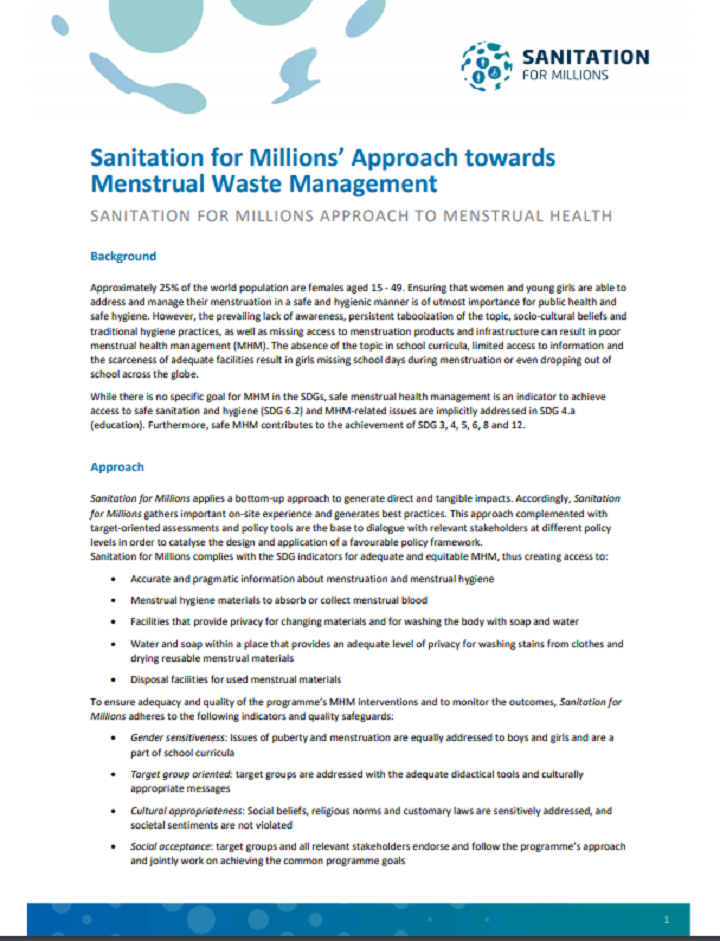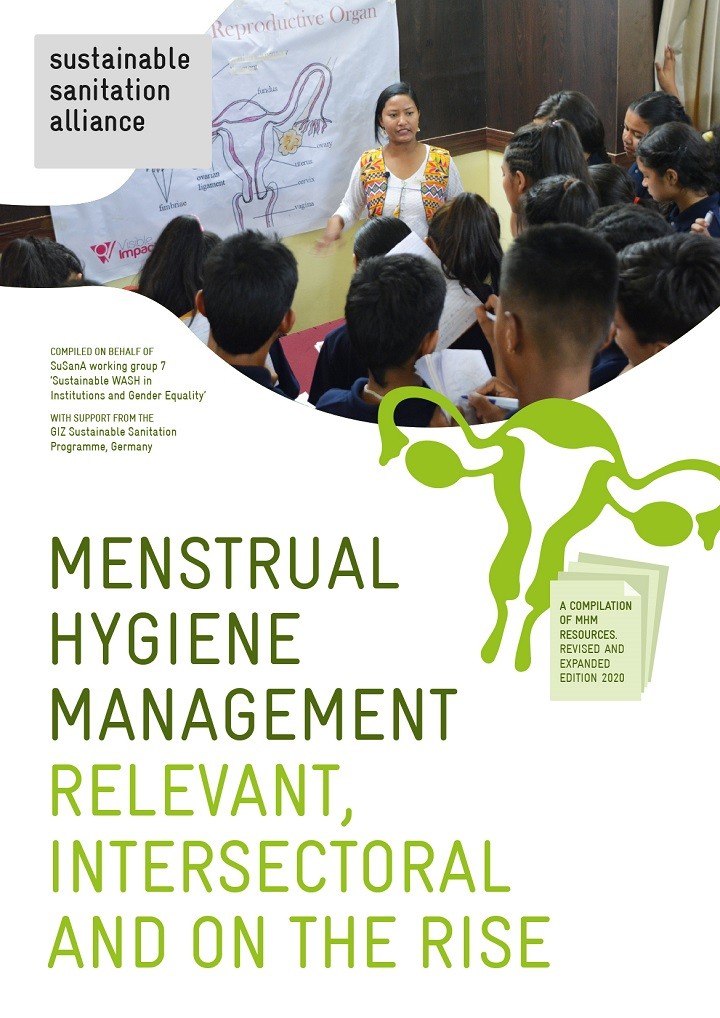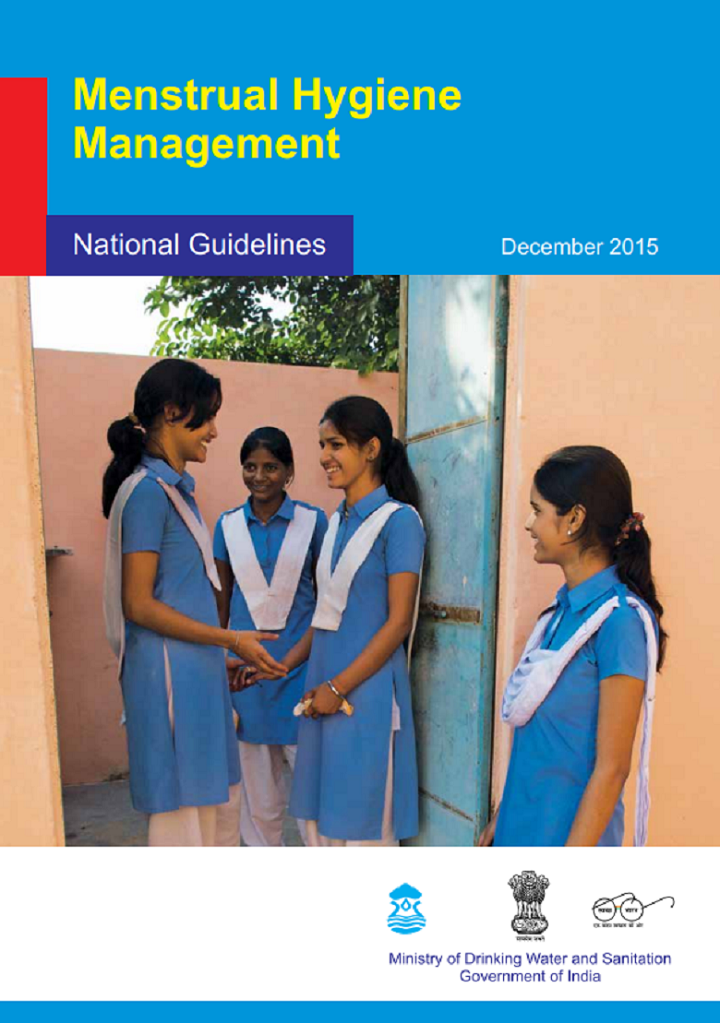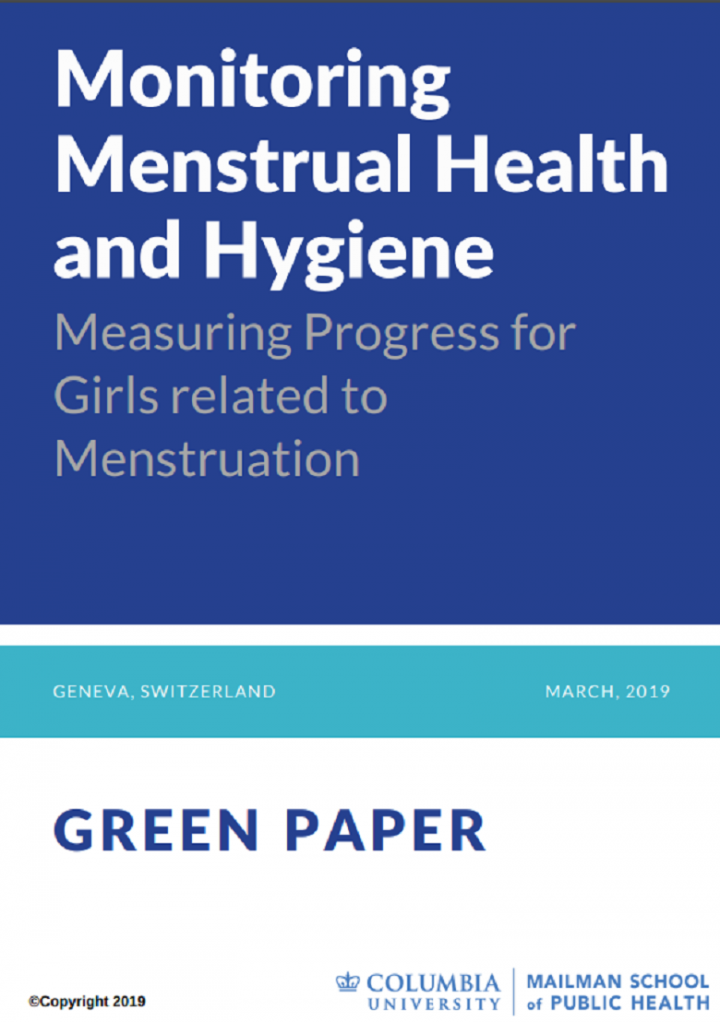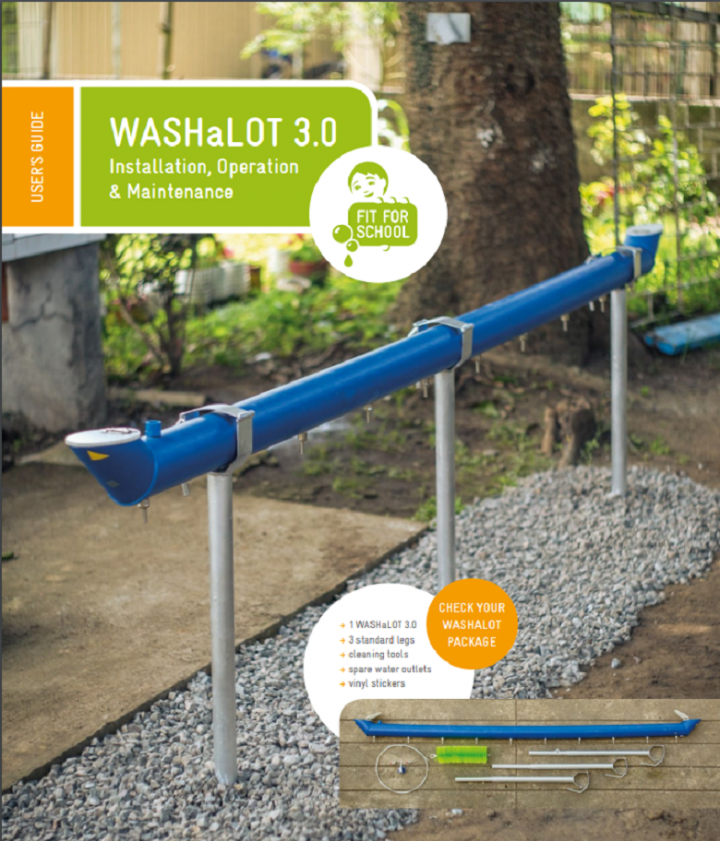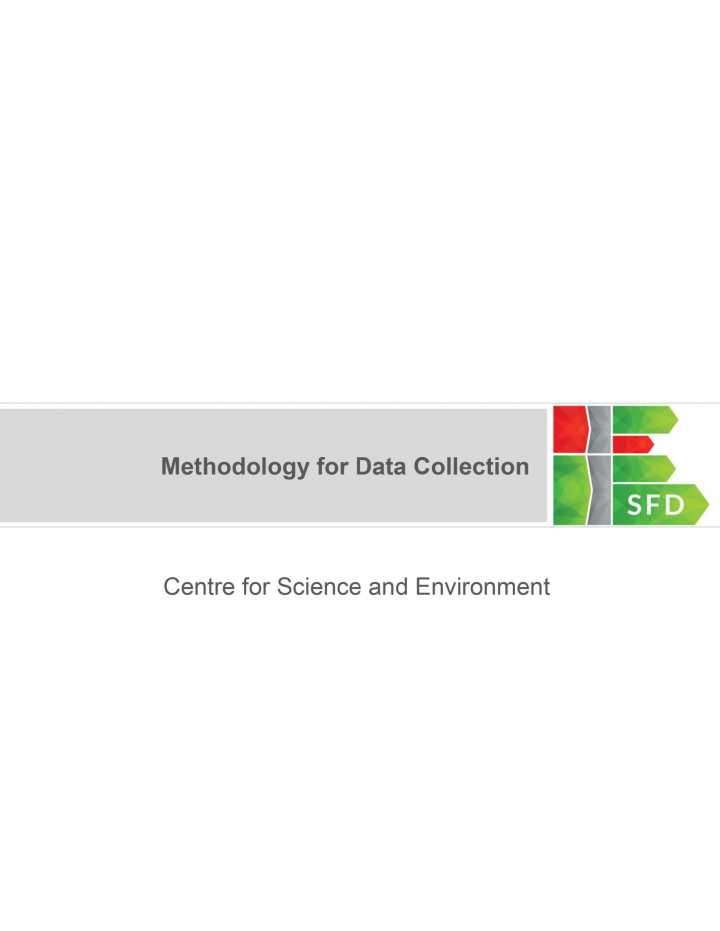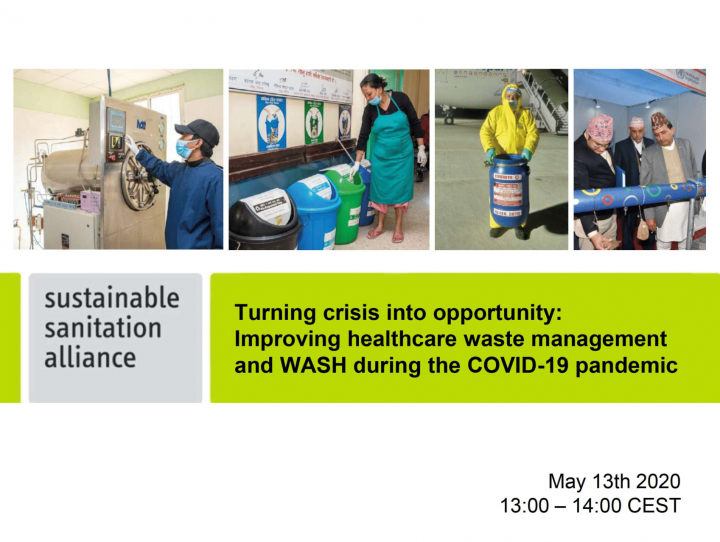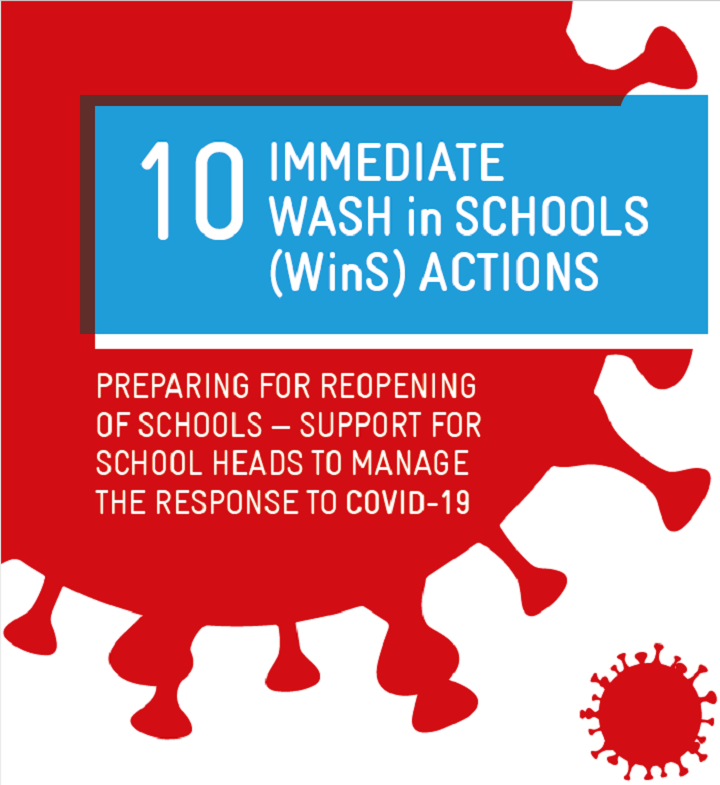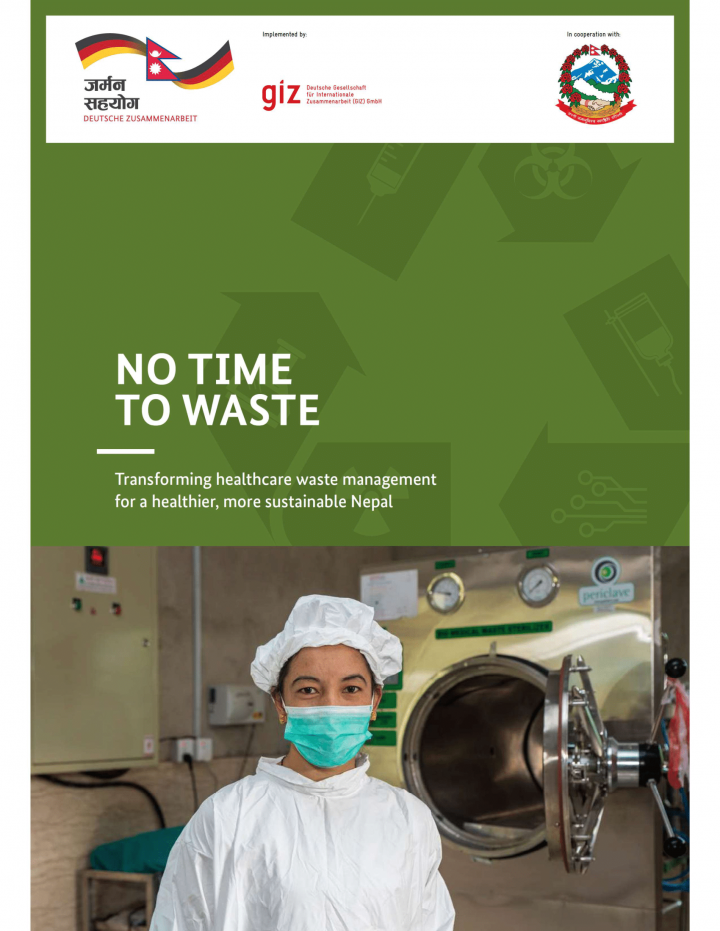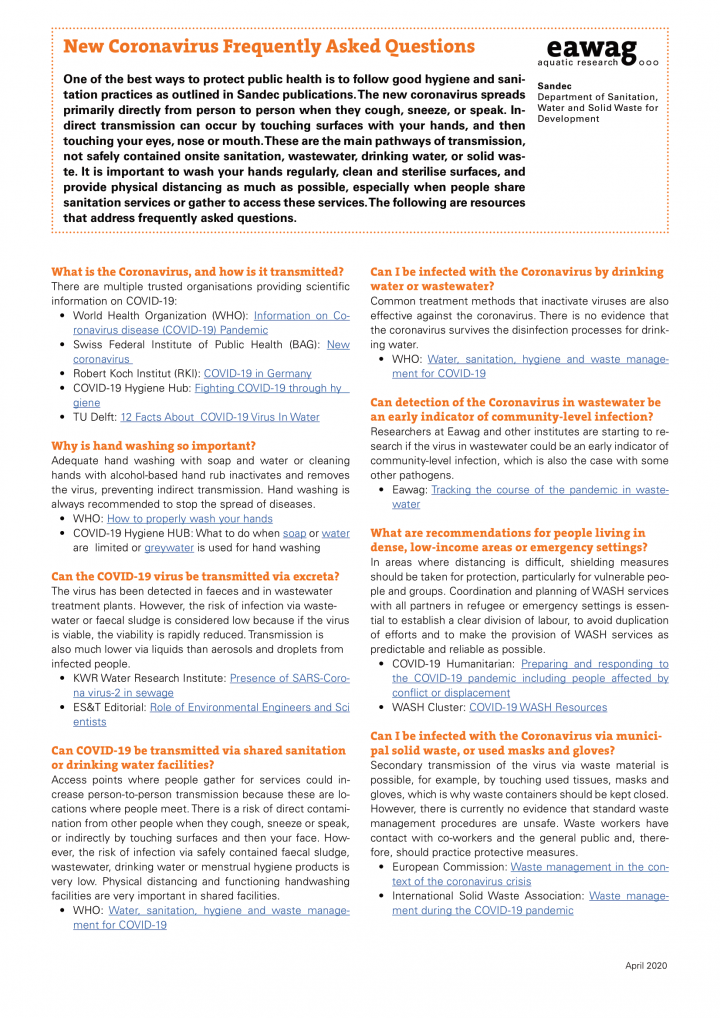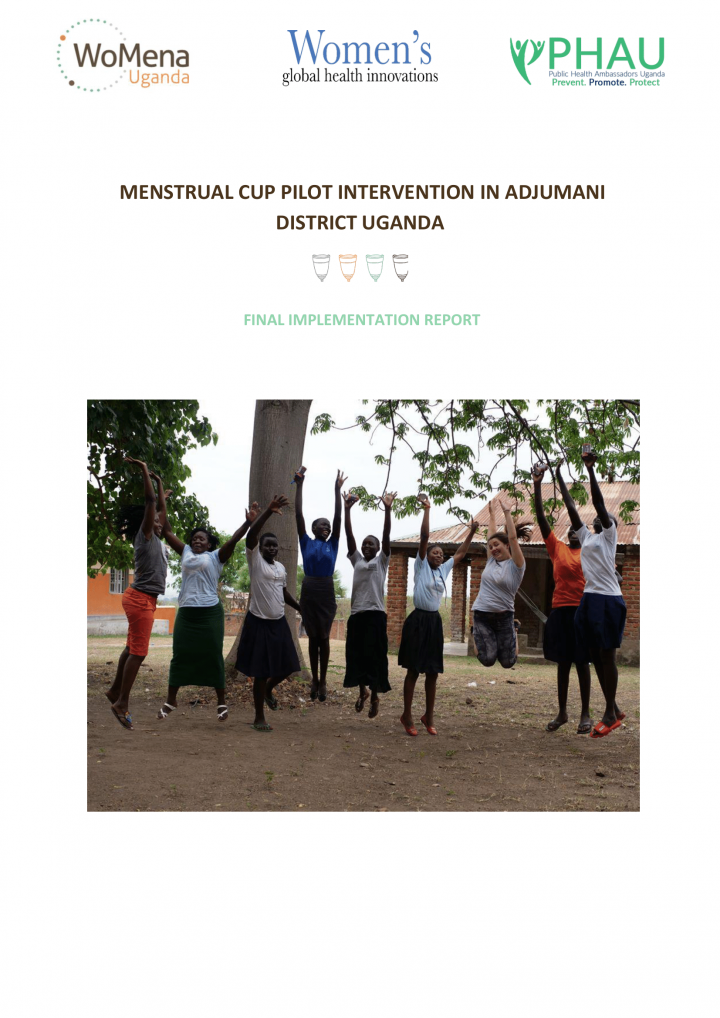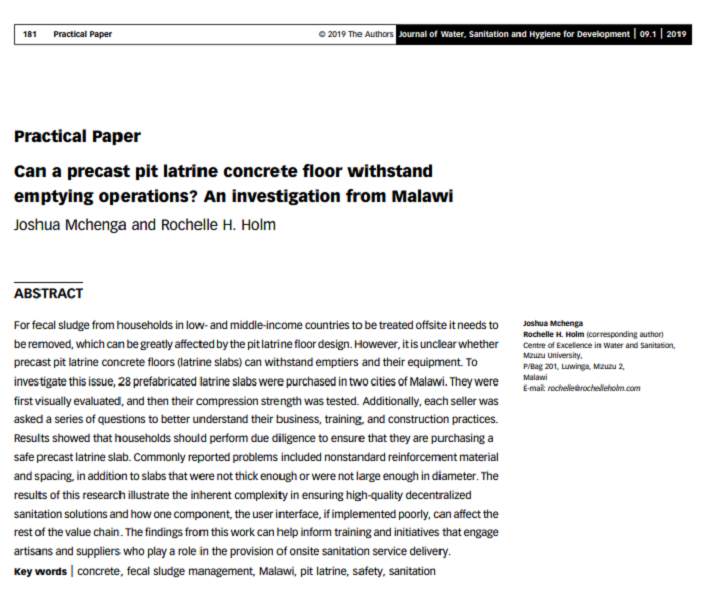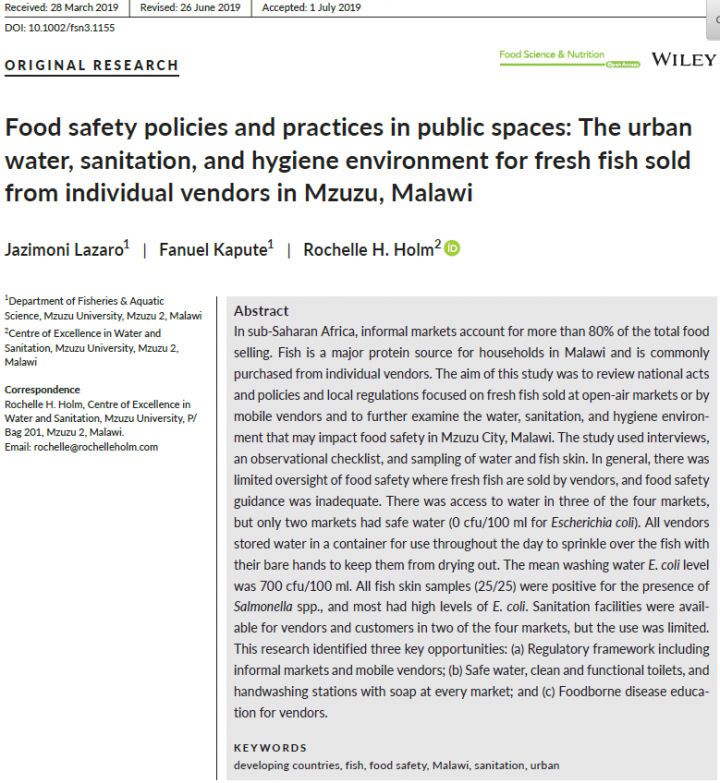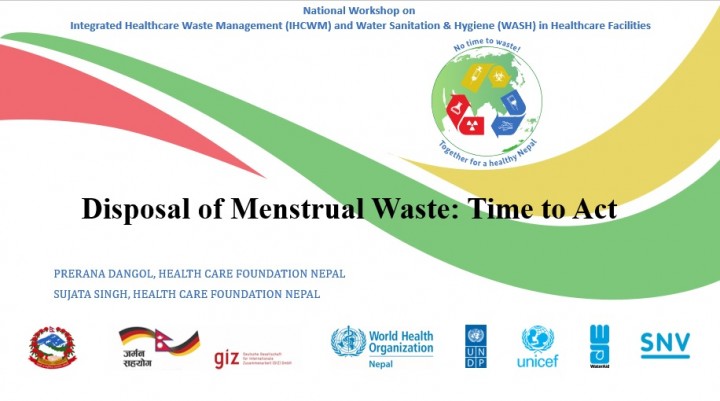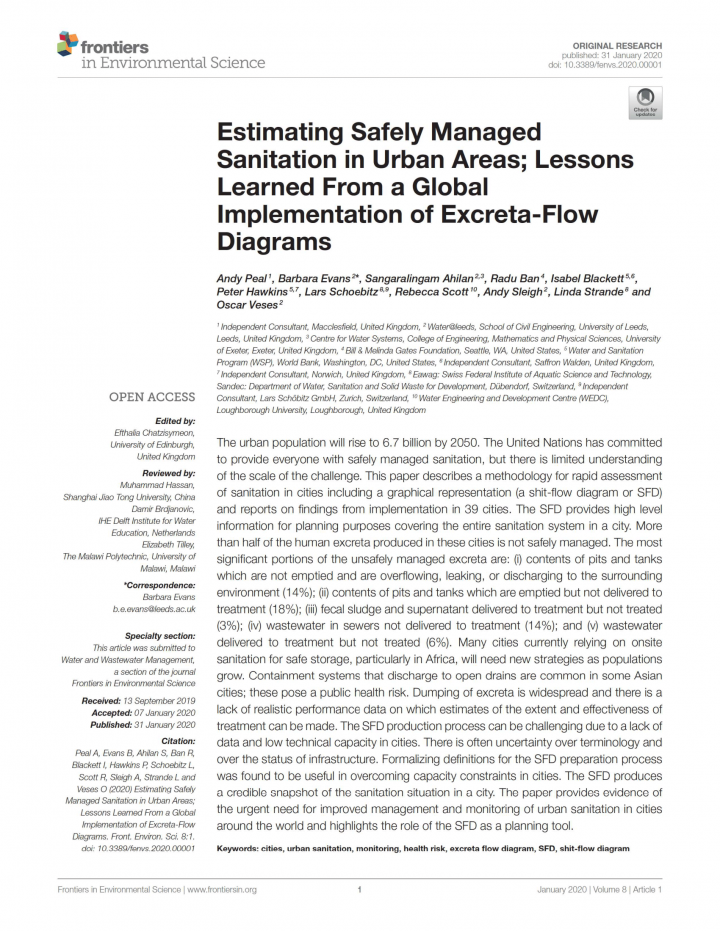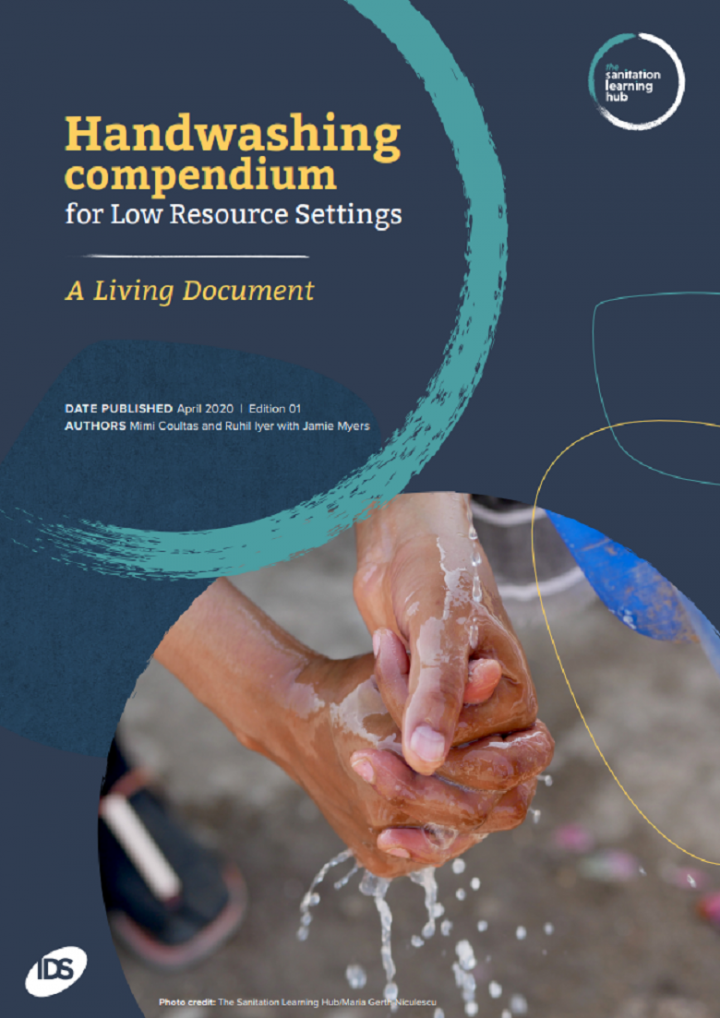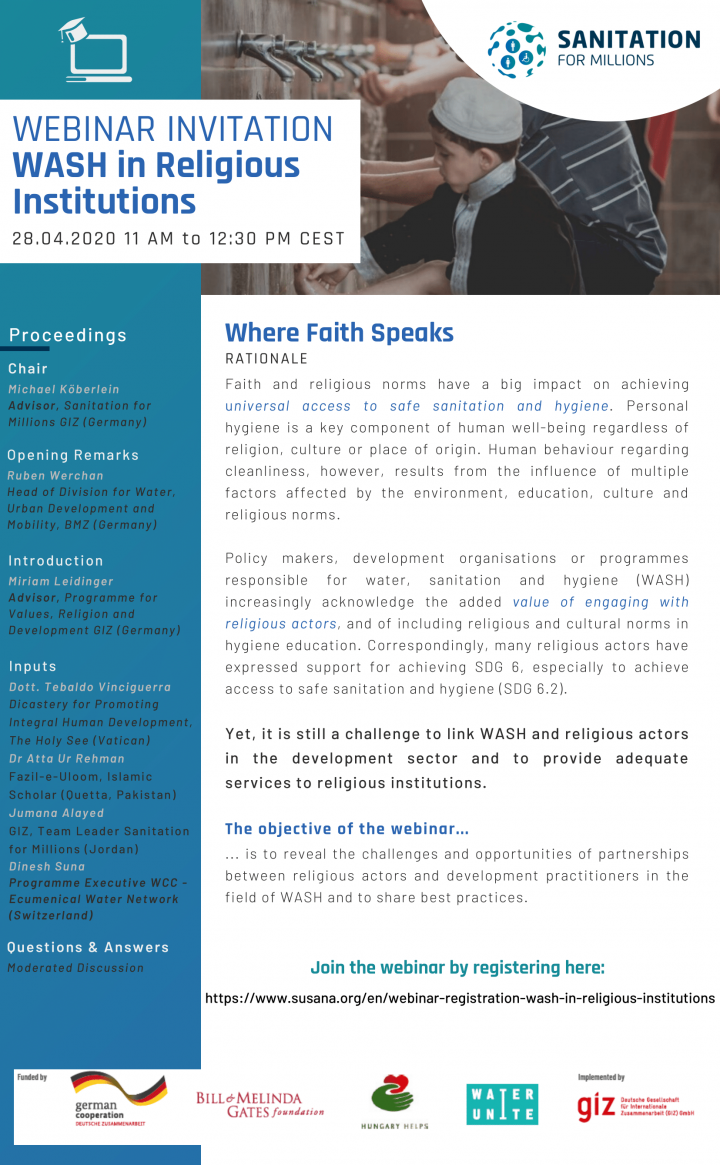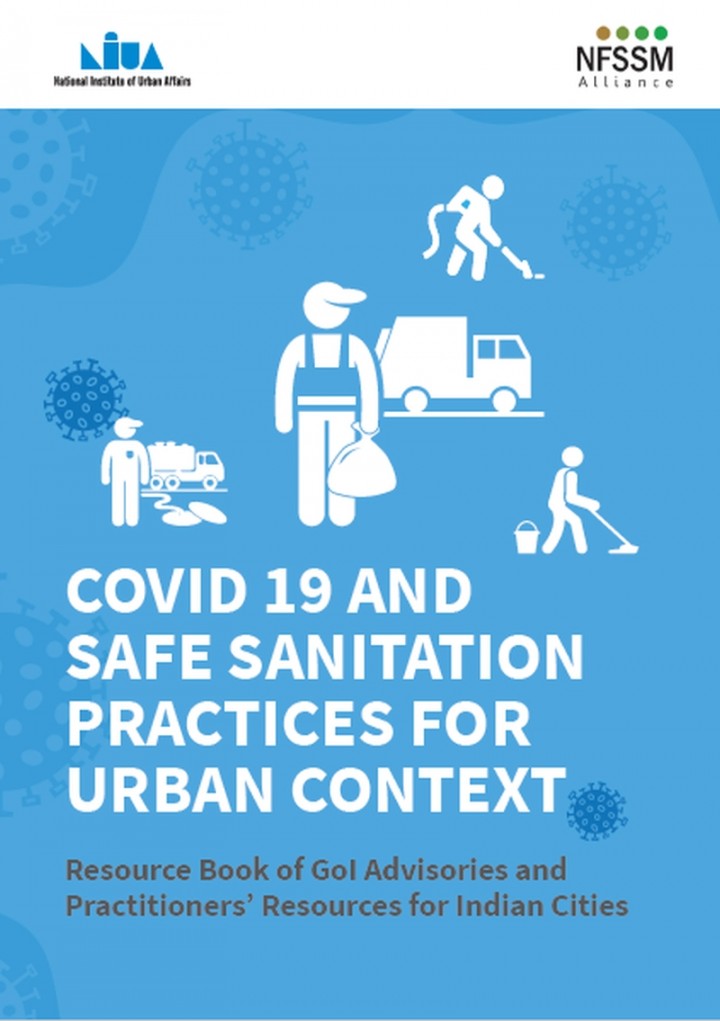GIZ Sanitation for Millions (2020) Sanitation for Millions Approach towards Menstrual Waste Management And Menstrual Health
Approximately 25% of the world population are females aged 15 - 49. Ensuring that women and young girls are able to address and manage their menstruation in a safe and hygienic manner is of utmost importance for public health and safe hygiene. However, the prevailing lack of awareness, persistent tabooization of the topic, socio-cultural beliefs and traditional hygiene practices, as well as missing access to […]
Various authors (2020) Biomass Controls Publications Various publications during 2018 to 2020
Biomass Controls Publications Last updated 29 April 2020 2020 Elledge, Myles, Anju Toolaram, Parker, Alison. A Gender Lens into Sanitation Technology Innovation (2020). Journal of Management in Engineering, 2020, 36(4): 06020002 Claire M. Welling, Sarani Sasidaran, Prateek Kachoria, Sarah Hennessy, Brendon J. Lynch, Stephanie Teleski, Hitendra Chaudhari, Katelyn L. Sellgren, Brian R. Stoner, Sonia Grego et al. "Field testing of a household-scale onsite blackwater treatment system in Coimbatore, India." […]
Barghusen, L., Brama, K., Schlenk, J. (2020) Menstrual Hygiene Management: Relevant, Intersectoral and on the Rise
This compilation of MHM resources attempts to provide an overview of and categorise the key resources on MHM to date. By bringing together the growing body of resources, including research, case studies and information material for girls and boys, this publication intends to provide interested individuals and organisations with an overview of the most relevant publications on MHM.
Ministry of Drinking Water and Sanitation (2015) Menstrual Hygiene Management - National Guidelines
Menstruation is a natural, normal biological process experienced by all adolescent girls and women, yet it is not spoken about openly causing unnecessary embarrassment and shame. India’s 113 million adolescent girls are particularly vulnerable at the onset of menarche. At this time they need a safe environment that offers protection and guidance to ensure their basic health, well-being and educational opportunity is realised. Yet a […]
Sommer, M., Zulaika, G., Schmitt, M., Gruer, C. (2019) Monitoring Menstrual Health and Hygiene: Measuring Progress for Girls on Menstruation
There is growing global momentum around addressing menstruation as an important health, education and gender equality issue. However, a critical barrier to making progress on addressing menstruation and the range of girls’ needs around this issue, is the lack of adequate validated measures related to measuring menstruation within global health and development. Measures are most needed that are aligned to five priority areas (sexual and […]
Madrid, F., Monse, B., Freundel, M., Schlenk, J. (2019) WASHaLOT 3.0 Installation, Operation & Maintenance
This guide will provide the school community the basic and necessary information on the installation process, Operation and Maintenance, and common troubleshooting of the WASHaLOT 3.0.
CSE (2019) SFD Presentation - Methodology for Data Collection
This presentation shows several methods of sourcing primary and secondary data, that is required for the preparation of SFDs. It also features CSE's experiences with data collection and pictures from field surveys.
Various Authors (2020) Turning crisis into opportunity: Improving healthcare waste management and WASH during the COVID-19 pandemic - Presentations
On 13th of May SuSanA and GIZ (Sustainable Sanitation Programme & Support to the Health Sector Programme Nepal) jointly hosted a webinar on "Improving healthcare waste management and WASH during the COVID-19 pandemic". With the COVID-19 pandemic, we are experiencing a rapid increase in healthcare waste. Countries and health systems are struggling to safely manage and dispose of this waste in a way that does […]
WASH in Schools Network (2020) 10 Immediate WASH in Schools (WinS) Actions - For School Heads to Manage the Response to COVID-19 (Various languages available)
10 immediate WASH in schools (WinS) actions; 1. Handwashing 2. Water availability 3. Supplies 4. Cleaning and disinfecting 5. Waste management 6. Physical distancing 7. Establish a monitoring team 8. Operation or training 9. Checklists 10. Hygiene culture
Birdsall, K. (2020) No Time to Waste - Transforming healthcare waste management for a healthier, more sustainable Nepal
This publication describes the beginnings of a movement to address the adverse effects of healthcare waste on both people and the environment in Nepal. Healthcare waste refers to all waste generated in healthcare facilities, research centers and laboratories. It includes a broad range of materials, from potentially hazardous items, such as used needles and syringes, soiled dressings, body parts and blood, diagnostic samples, chemicals, pharmaceuticals […]
Eawag (2020) New Coronavirus Frequently Asked Questions - Factsheet
One of the best ways to protect public health is to follow good hygiene and sanitation practices as outlined in Sandec publications. The new coronavirus spreads primarily directly from person to person when they cough, sneeze, or speak. Indirect transmission can occur by touching surfaces with your hands, and then touching your eyes, nose or mouth. These are the main pathways of transmission, not safely […]
WoMena (2020) Menstrual Cup Intervention in Adjumani District Uganda - Final Implementation Report
In Uganda approximately 86% of South Sudanese refugee arrivals are women and children (UNHCR, 2017a). Globally, girls and women often lack the ability to manage their menstruation with dignity due to lack of adequate and private facilities, safe, acceptable and accessible menstrual health products and knowledge, which can be further exacerbated during conflict and displacement. Menstrual health management is, however, often an overlooked component in […]
Mchenga, J., Holm, R. H. (2019) Can a precast pit latrine concrete floor withstand emptying operations? An investigation from Malawi
For fecal sludge from households in low- and middle-income countries to be treated offsite it needs to be removed, which can be greatly affected by the pit latrine floor design. However, it is unclear whether precast pit latrine concrete floors (latrine slabs) can withstand emptiers and their equipment. To investigate this issue, 28 prefabricated latrine slabs were purchased in two cities of Malawi. They were […]
Lazaro, J., Kapute, F., Holm, R. H. (2019) Food safety policies and practices in public spaces: The urban water, sanitation, and hygiene environment for fresh fish sold from individual vendors in Mzuzu, Malawi
In sub‐Saharan Africa, informal markets account for more than 80% of the total food selling. Fish is a major protein source for households in Malawi and is commonly purchased from individual vendors. The aim of this study was to review national acts and policies and local regulations focused on fresh fish sold at open‐air markets or by mobile vendors and to further examine the water, […]
HECAF 360 (2020) The women’s health and environmental impacts of menstrual hygiene products, including its waste disposal via vermi-composting - Presentation
Please find the presentation below. A factsheet on this topic will follow shortly.
Peal, A., Evans, B., Ahilan, S., Ban, R., Blackett, I., Hawkins, P., Schoebitz, L., Scott, R., Sleigh, A., Strande, L., Veses, O. (2020) Estimating Safely Managed Sanitation in Urban Areas - Lessons Learned From a Global Implementation of Excreta-Flow Diagrams
This paper describes a methodology for rapid assessment of sanitation in cities including a graphical representation (a shit-flow diagram or SFD) and reports on findings from implementation in 39 cities. The SFD provides high level information for planning purposes covering the entire sanitation system in a city. More than half of the human excreta produced in these cities is not safely managed. The most significant […]
Elledge, M., Anju, T., Parker, A. (2020) A Gender Lens into Sanitation Technology Innovation
Abstract Innovators in the water and sanitation sector are focused on closing the sanitation gap in developing countries through innovation in technologies that enable waste treatment onsite. To ensure universal access, these technologies need to meet the practices and preferences of different genders. This paper uses an online survey and follow-up telephone interviews with technology developers and examined the different technology development processes through a gender […]
Coultas, M. and Iyer, R. with Myers, J. (2020) Handwashing Compendium for Low Resource Settings: A Living Document
Frequent and proper handwashing with soap is vital to prevent the spread of COVID-19. In response, we have developed this Handwashing Compendium for Low Resource Settings. Bringing existing information from different organisations into one place, the compendium provides guidance, local examples of and further resources on accessible low-cost handwashing facilities, environmental cues and physically distanced hygiene promotion. The compendium is a living document which will be updated […]
GIZ (2020) Webinar - Where Faith Speaks: WASH in Religious Institutions
In this webinar development practitioners and religious actors shared their experiences in collaborating to jointly achieve the fulfillment of SDG 6.2. . The speakers showcased best practices and innovative approaches and elaborate their view on the importance of religious actors on achieving universal access to water, sanitation and hygiene. Unfortunately there were technical difficulties towards the end of the webinar - the recordings of the missing […]
NIUA (2020) COVID 19 and Safe Sanitation Practices for Urban Context
This Resource Book is a compilation of important Govt of India Advisories and other Knowledge Resources relating to Urban Sanitation and COVID. National Institute of Urban Affairs (NIUA) along with the National Faecal Sludge and Septage Management (NFSSM) Alliance Partners, has taken up this initiative of creating a repository of important government advisories and practitioners’ guidance material for Urban Local Bodies (ULBs), state governments, elected […]
